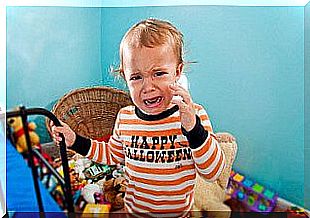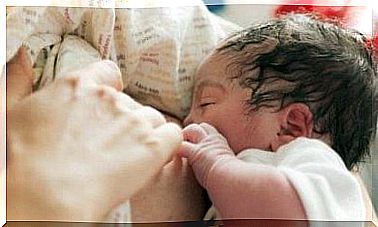Selfishness In Children

Many children become the princes and princesses of the houses they live in, but the situation becomes complicated when they have to learn to share with siblings or, if they are only children, with other children in the school or park.
Selfish children think that their needs and desires are more important than those of other people and, at a later age, they usually have socialization problems because they do not know how to relate sensibly to others.
In this article we will give you six tips to help your children overcome the selfish attitude that characterizes them or at least bring it to a healthy and manageable level.
What forms of selfishness are there?
What you will read below does not only refer to children, but also to adults. Let’s find out together the characteristics of the various forms of selfishness:
- Type 1 : These people are characterized by their aggressiveness, their ability to manipulate, the desire to take control and the fact of giving themselves all the importance, passing over the interests of others. People with this kind of selfishness don’t feel guilty about what they do, rather they tend to blame others for their actions.
- Type 2 : These people are defensive, anxious and amplify the negative feelings they have to the point of becoming victims. They are people who struggle to manage personal affections.
- Type 3 : unlike the previous type, this form of selfishness is typical of those people who exaggerate their strengths and omit their weaknesses.
- Type 4 : is the most common form of selfishness among children and is characterized by a significant need to want to control others. It occurs at any age, but if it lasts until adolescence, it could turn into one of the varieties already presented.

5 tips to “cure” selfishness
- The first thing to do is to censor selfish behaviors, not give in or justify them for any reason. It is not an easy task, especially if it is a child who has always had what he wanted, but it must be done if you want to notice a change. Tell your children what behaviors are not allowed and what you expect from them, as well as continually reiterate the rules.
- Stimulate the development of empathy. With this ability, your children will learn to put themselves in others’ shoes and share their feelings in some way. Make them feel motivated to help others and understand people’s emotions and rations in certain situations. Ask them how they would feel if… and present them with real and possible situations.
- One reason children become selfish is because they are used to getting what they want and acting without consequences. Set well-defined boundaries and make sure they apply to everyone in contact with them at home and at school, so they understand that they must obey a unified and precise authority.
- Praise them when they perform an “unselfish” action. With siblings, father, or classmates, exalt positive behavior so that it has a consequence in practice. If you do, these kinds of actions will become more and more frequent and your children will practice them spontaneously.
- Reinforce positive attitudes so that your children become selfless and respectful of others. Help your children see all the positive consequences of a nice gesture, be it for the gesture itself or for the person who receives it.

Quick tips guide to avoid selfishness :
- Be models of generosity and disinterest.
- Correct selfish behaviors.
- Delegate tasks proportionately.
- Show the damage that can result from selfishness in relationships.
- Motivate children to treat others with respect.
- Motivate children to develop their talents and qualities.
- Involve children in social projects that help others.
- Openly express feelings of gratitude towards people.
- Create spaces where children share and cooperate with other people.
- Get your children to play a sport that encourages teamwork.
- Show yourself grateful and value the daily actions that take place as a family.









